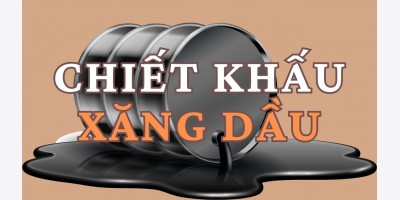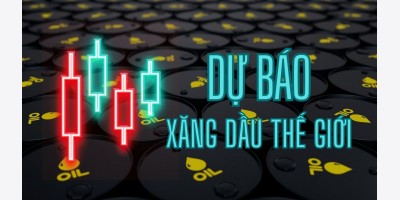Giá dầu thô gần chạm mức 100 USD/thùng
Sá»± bất ổn chính trị ngày má»™t leo thang ở Libya tiếp tục đẩy giá dầu thô tăng cáºn mức 100 USD/thùng trong phiên Mỹ tối qua do sá»± quan ngại vá» nguồn cung dầu thô ở quốc gia sản xuất đứng thứ ba tại châu Phi này sẽ bị gián Ä‘oạn.
NhÆ° váºy, giá dầu thô trong phiên hôm qua Ä‘ánh dấu mức tăng mạnh nhất kể từ hai năm qua do ngÆ°á»i dân Libya tuyên bố Ä‘ã hất cẳng quân Ä‘á»™i của Muammar Qaddafi và chiếm chiếm giữ được các thành phố ở miá»n tây nÆ°á»›c này, trong khi Ä‘ó những lá»±c lượng trung thành của tổng thống thì vẫn Ä‘ang kiểm soát thủ Ä‘ô Tripoli.
NhÆ°ng sau Ä‘ó giá dầu có Ä‘ôi phần giảm nhẹ Ä‘ôi chút do giá»›i đầu tÆ° Ä‘ã tạm yên tâm hÆ¡n vá» việc Ả Ráºp Saudi phát Ä‘i tín hiệu sẵn sàng tăng sản lượng trên thị trÆ°á»ng.
Phil Flynn, phó chủ tịch Trung tâm nghiên cứu PFGBest ở Chicago nói, việc giảm nguồn cung ở Libya thá»±c sá»± Ä‘ã tác Ä‘á»™ng đến lượng dầu thô trên thị trÆ°á»ng thế giá»›i. Tuy nhiên, vấn đỠở Ä‘ây là tình hình bất ổn cÅ©ng Ä‘ang lan rá»™ng ra các nÆ°á»›c khu vá»±c Trrung Äông, trong Ä‘ó có Ả Ráºp Saudi lẫn những nhà sản xuất khác.
Giá dầu thô WTI giao kỳ hạn tháng 04 Ä‘ã tăng 1,15 USD/thùng lên 99,25 USD/thùng. Vào lúc 8h30 sáng nay (giá» Việt Nam), giá dầu thô Ä‘ang ở mức 98,47 USD/thùng. Trong phiên Mỹ tối qua, giá dầu Ä‘ã leo lên mức cao nhất là 99,93 USD/thùng, tăng 24% so vá»›i cách Ä‘ây má»™t năm.
Giá dầu thô Brent giao kỳ hạn tháng 04 tại London tăng 5,47 USD/thùng (5,2%) lên mức 111,25 USD/thùng trong ngày hôm qua, mức cao nhất kể từ ngày 29/08/2008.
Theo báo cáo từ Viện xăng dầu Mỹ, dá»± trữ dầu thô của Mỹ Ä‘ã tăng 163.000 thùng trong tuần kết thúc vào ngày 18/02. Khả năng trong báo cáo của Bá»™ năng lượng vào tối nay, lượng tồn dầu thô của nÆ°á»›c này tăng 1,1 triệu thùng trong tuần qua.
Ná»n kinh tế toàn cầu hiện Ä‘ang phát triển mạnh và sẽ Ä‘iá»u tiết giá dầu thô vượt mức ká»· lục của năm 2008. Trong năm 2008, giá dầu Ä‘ã thiết láºp ở mức cao nhất là 147,27 USD/thùng. Tuy nhiên, Chủ tịch Cục dá»± trữ liên bang Mỹ phát biểu trong bản tin buổi sáng của Bloomberg Breakfast ở Washington vào ngày hôm qua rằng, Ngân hàng Trung Æ°Æ¡ng Ä‘ã có nhiá»u kinh nghiệm trong việc kiểm soát những vấn Ä‘á» này.
Trong khi Ngân hàng Nomura Holdings Inc dá»± báo rằng giá dầu có thể sẽ vá»t lên mức 220 USD/thùng nếu má»i nguồn cung từ Libya và Nigeria Ä‘á»u bị ngÆ°ng lại do tình trạng bất ổn lan rá»™ng trong khu vá»±c. Cả hai nÆ°á»›c này Ä‘á»u là thành viên của tổ chức OPEC.
Oil Advances a Sixth Day After Climbing to $100 on Libya Unrest
By Margot Habiby and Ben Sharples
Feb. 24 (Bloomberg) -- Oil for April delivery rose for a sixth day in New York after reaching $100 a barrel as unrest in Libya threatened to disrupt exports from the third-biggest African supplier.
Futures advanced to the highest in more than two-years yesterday as Libyans claiming to have ousted Muammar Qaddafi’s troops organized committees to run and defend eastern cities, while forces loyal to the leader retained control of the capital, Tripoli. Prices pared after signals that Saudi Arabia is willing to put more oil on the market.
“With the cut in Libyan output, the unrest in the Middle East is actually having an impact on oil supply,” said Phil Flynn, vice president of research at PFGBest in Chicago. “There’s concern that unrest will spread further, threatening Saudi Arabia and other producers.”
Crude for April delivery gained as much as $1.15, or 1.2 percent, to $99.25 a barrel in electronic trading on the New York Mercantile Exchange, and was at $99.15 at 10:52 a.m. Sydney time. Yesterday, it increased $2.68, or 2.8 percent, to $98.10, the highest settlement since Oct. 1, 2008. Prices are 24 percent higher than a year ago.
Oil retreated from $100 after Saudi Arabia and other countries said that they might not wait for an emergency meeting of the Organization of Petroleum Exporting Countries to increase output, according to a person with knowledge of producer-nation policy. Any extra supply would be conditional on requests for more crude, the person said.
U.S. Supplies
Brent oil for April settlement rose $5.47, or 5.2 percent, to $111.25 a barrel on the ICE Futures Europe exchange yesterday, the highest close since August 29, 2008.
Crude stockpiles in the U.S. climbed 163,000 barrels last week, according to the industry-funded American Petroleum Institute. An Energy Department report today may show supplies increased 1.1 million in the seven days ended Feb. 18 from 345.9 million a week earlier, according to the median estimate of 15 analysts in a Bloomberg News survey.
The global economy is in a much stronger position to handle rising oil prices than it was in 2008, when crude shot up to a record $147.27 a barrel in New York, U.S. Treasury Secretary Timothy F. Geithner said yesterday during a Bloomberg Breakfast in Washington. “Central banks have a lot of experience in managing these things.”
Oil prices may surge to $220 if production is halted in Libya and Algeria because of spreading unrest in the region, Nomura Holdings Inc. said yesterday in a note. Algeria is also a member of OPEC.
Libya, which pumps 1.6 million barrels a day of oil, is the ninth-largest producer among the 12 members of OPEC, sending most of its crude and fuels across the Mediterranean to Europe. The country has the largest reserves in Africa.
Regional Unrest
The tanker Seabravery picked up oil at the Libyan ports of Zawia and Es Sider and sailed at 1 a.m. local time yesterday, suggesting supply is still flowing, according to Dimitris Tsahalis, chartering manager at Athens-based Thenamaris Ships Management Inc., which owns the vessel.
Libya is the latest nation to be rocked by protests ignited by the ouster of Tunisia’s president last month and fanned by the Feb. 11 fall of Egyptian President Hosni Mubarak.
Saudi Arabia’s King Abdullah increased spending yesterday on housing by 40 billion riyals ($10.7 billion) and allocated more funds for education and social welfare after protests reached neighboring Bahrain. The kingdom is the world’s largest crude exporter.
The Bahraini and Saudi kings met in Riyadh yesterday after more than a week of protests in Bahrain. The island nation is linked to Saudi Arabia by a 26-kilometer (16-mile) causeway, and unrest there has in the past spread across the border.
To contact the reporters on this story: Margot Habiby in Dallas at mhabiby@bloomberg.net; Ben Sharples in Melbourne at bsharples@bloomberg.net
To contact the editor responsible for this story: Clyde Russell at crussell7@bloomberg.net








